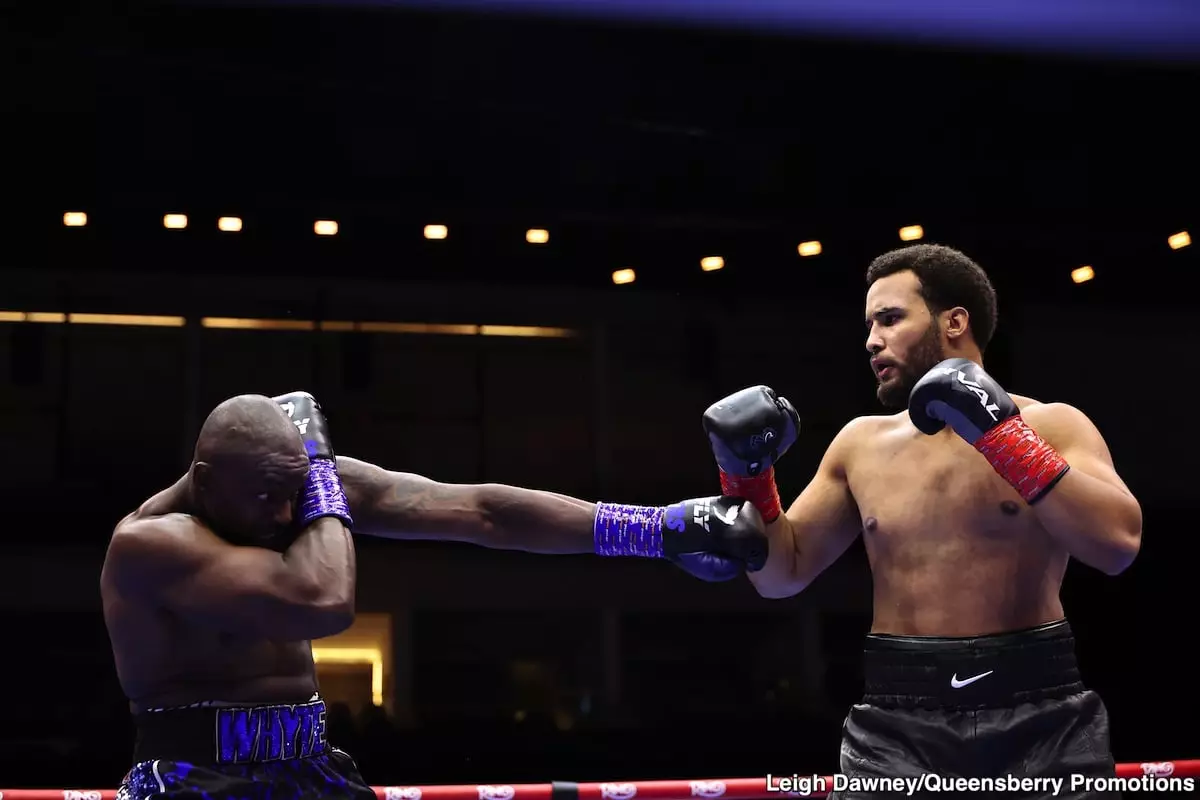In the world of heavyweights, the sport often romanticizes relentless youth and emerging talent, yet it’s the seasoned veterans who truly test the resilience and endurance of the human spirit. Luis Ortiz, a true southpaw veteran at 46, exemplifies this paradox. His return to the ring, marked by a swift first-round victory, is more than just a statistical highlight; it signals a fighter in peak mental and physical condition despite his years. In an era obsessed with age-defying narratives, Ortiz’s confidence—stating he is “ready for anybody”—challenges the myth that time is an insurmountable barrier in heavyweight boxing.
His willingness to call out names like Oleksandr Usyk and Anthony Joshua reveals more than bravado: it exposes a desire to reignite interest in the heavyweight division’s more experienced fighters. Yet, it’s clear that these bouts, glamorous as they sound, remain distant realities. The current landscape is dominated by promotional hurdles, contractual disagreements, and the sheer spectacle of youth-driven narratives. But the real intrigue lies in Ortiz’s openness to testing himself against the younger generation, notably Moses Itauma.
Candidate for a Legacy-Building Clash: Ortiz vs. Itauma
Moses Itauma, only 20, has become a rising star, touted for his power and potential. While it may seem unconventional—almost humorous—to suggest the elder Ortiz, who could literally be Itauma’s father—or grandfather—to face such a promising prospect, it underscores a vital point about boxing’s developmental needs. Sometimes, fighters benefit from a reality check, and the best way to achieve that is through a battle with someone with extensive ring experience, like Ortiz.
This proposed fight would serve multiple purposes: it’s a bridge between generations, a test of durability for the younger man, and an exploration of Ortiz’s resilience at his age. While concerns about Ortiz’s speed and stamina are valid, his durability and guile remain assets that could give Itauma a unique challenge. An opportunity to share the ring with a seasoned operator might be invaluable for Itauma’s growth, and from Ortiz’s standpoint, it’s a chance to stay relevant, earn a payday, and possibly boost his legacy in a different way.
Furthermore, the Ireland-based boxing environment—potentially hosting the bout in the UK—adds a layer of logistical intrigue. As long as financial demands are reasonable and licensing issues are navigable, such an encounter could push both fighters into meaningful territory. It would also capture the imagination of fans craving fresh narratives, blending the old with the new.
The Broader Implications for Heavyweight Boxing
In contemplating a matchup like Ortiz versus Itauma, one must consider the broader implications: it’s a reflection of a sport that values experience just as much as youth. Too often, boxing’s narrative corridor is dominated by the spectacle of young prospects and marketable champions, ignoring the rich stories and lessons older fighters still have to offer.
Ortiz embodies the persistence and resilience that boxing celebrates, standing as a reminder that age is a number, not a destiny. Meanwhile, Itauma represents the future—raw, hungry, and eager to carve his name into history. Pairing them up isn’t just about a fight; it’s about challenging conventions and encouraging a more nuanced view of what it means to be a boxer past the age of 30.
If the sport can champion these kinds of mismatched but meaningful bouts, it will foster a more inclusive, layered narrative—one that honors experience and encourages development. Ortiz’s confidence and readiness suggest that age might be a state of mind, and fighters like him prove that staying relevant in boxing is as much about mental fortitude as it is about physical prowess.
In the end, the potential matchup between Ortiz and Itauma isn’t merely an opportunistic fight; it’s a bold statement that the sport still has room for surprises, for cross-generational clashes that challenge preconceived notions, and for legends to mentor and test the next wave of stars. The boxing community should embrace such a matchup—not just for the entertainment but as an essential chapter in rewriting narratives about age, experience, and the enduring spirit of the sport.


Leave a Reply